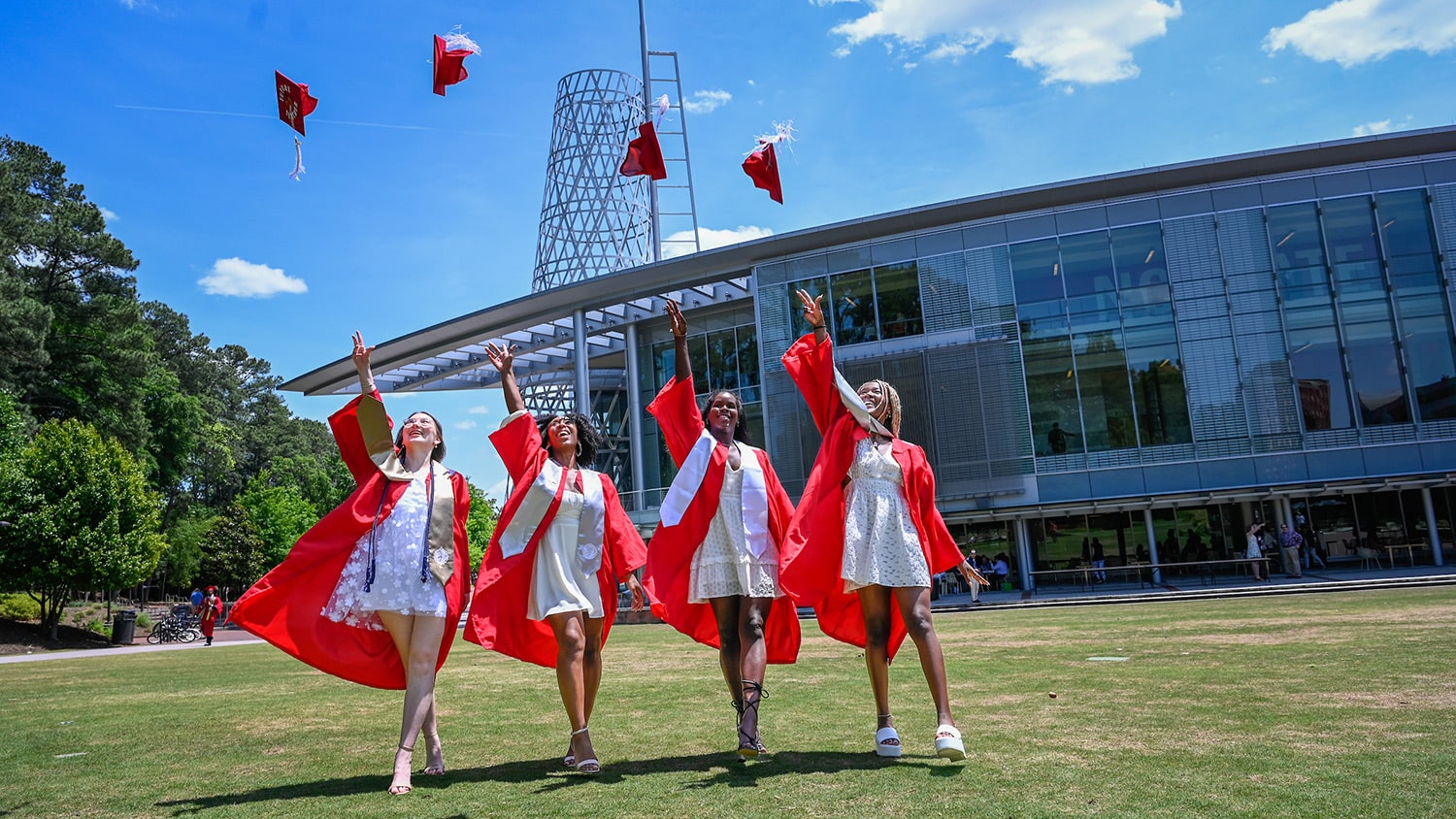Senators Hear New Revenue Ideas

Money matters dominated the agenda at Tuesday’s Faculty Senate meeting, where university officials recapped recent fundraising successes and floated ideas for creating new revenue streams for the university.
(Editor’s Note: The Hofmann Forest information in this story is outdated and no longer accurate. Get the most current information on the future of Hofmann Forest.)
Chancellor Randy Woodson reviewed a freshly inked agreement negotiated by the university’s endowment fund to sell the 79,000-acre Hofmann Forest to a private company for $150 million. The proceeds are projected to generate as much as $6 million a year to support students and programs in the College of Natural Resources, he said.
“It will be transformative for the college to have an endowment of that magnitude,” Woodson said.
Last year the forest generated less than $1 million in income for the college.
The chancellor said the buyer agreed to all of the university’s key demands: the price was right, the property remains accessible for research and the Hofmann name will be maintained as a legacy to the late J.V. “Doc” Hofmann, director of NC State’s division of forestry from 1929 to 1948. Hofmann spearheaded the university’s acquisition of the coastal property in 1934.
Woodson said the buyer also agreed to negotiate with the military to allow Marine Corps pilots from Camp Lejeune to continue conducting navigation training exercises and low-altitude flights over the forest. That’s good news for the university, which wants to see the land preserved as a forest.
“The biggest value of the property is its value to the military,” Woodson said. “And the military has every reason to want it to remain a dark, working forest.”
Looking for New Money
The senate heard a presentation by David Bristol, vice provost for academic resource management, who ran down a list of potential revenue sources as yet untapped by the university. The list included big ticket items, like selling millions of dollars in taxable “century bonds” with 100-year terms and low debt service costs, as well as more modest proposals, like leasing space for a cell tower on campus. At least one idea – implementing shared services across campus – has been tried on a limited basis and found to be far more challenging than expected.
But, said faculty chair David Zonderman, some new revenue ideas may be worth considering, especially as the university grapples with an increasingly tight budget.
“Finding new sources of revenue is better than continuing to make cuts,” he said. “But we need to protect our core mission and not compromise on what we are, which is a university. It’s a balancing act.”
The university hopes to safeguard the funding it needs to make strategic investments in faculty and infrastructure in the coming years as outlined in the 2011-20 strategic plan. Nearly annual cuts in state funding have made the task particularly difficult but all the more necessary. In the past decade, state support for the university has dropped by $163 million in recurring, or permanent, funds. This year NC State eliminated 187 faculty and staff positions and trimmed budgets across campus to absorb a $21-million reduction in state appropriations.
Other News
Senators also learned more about the Park Scholarship program, which recently received a $50-million donation from the Park Foundation, the largest gift in NC State history. And they heard the first reading of a proposed resolution on public school teachers and advanced degrees.
Next Meeting
At the senate’s next meeting on Tuesday, Nov. 19, senators will discuss faculty retention and the university’s new cluster hire program.
- Categories:


